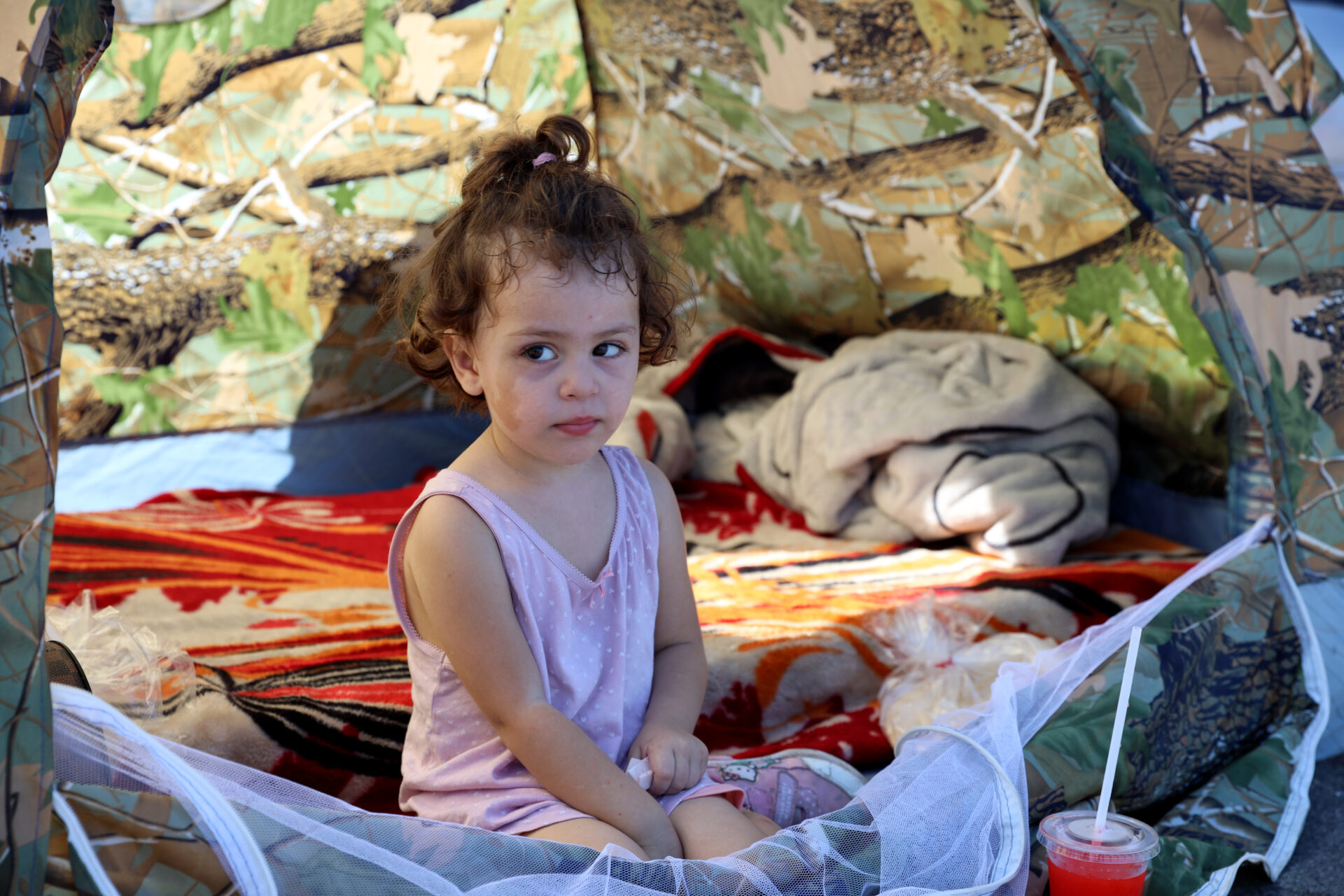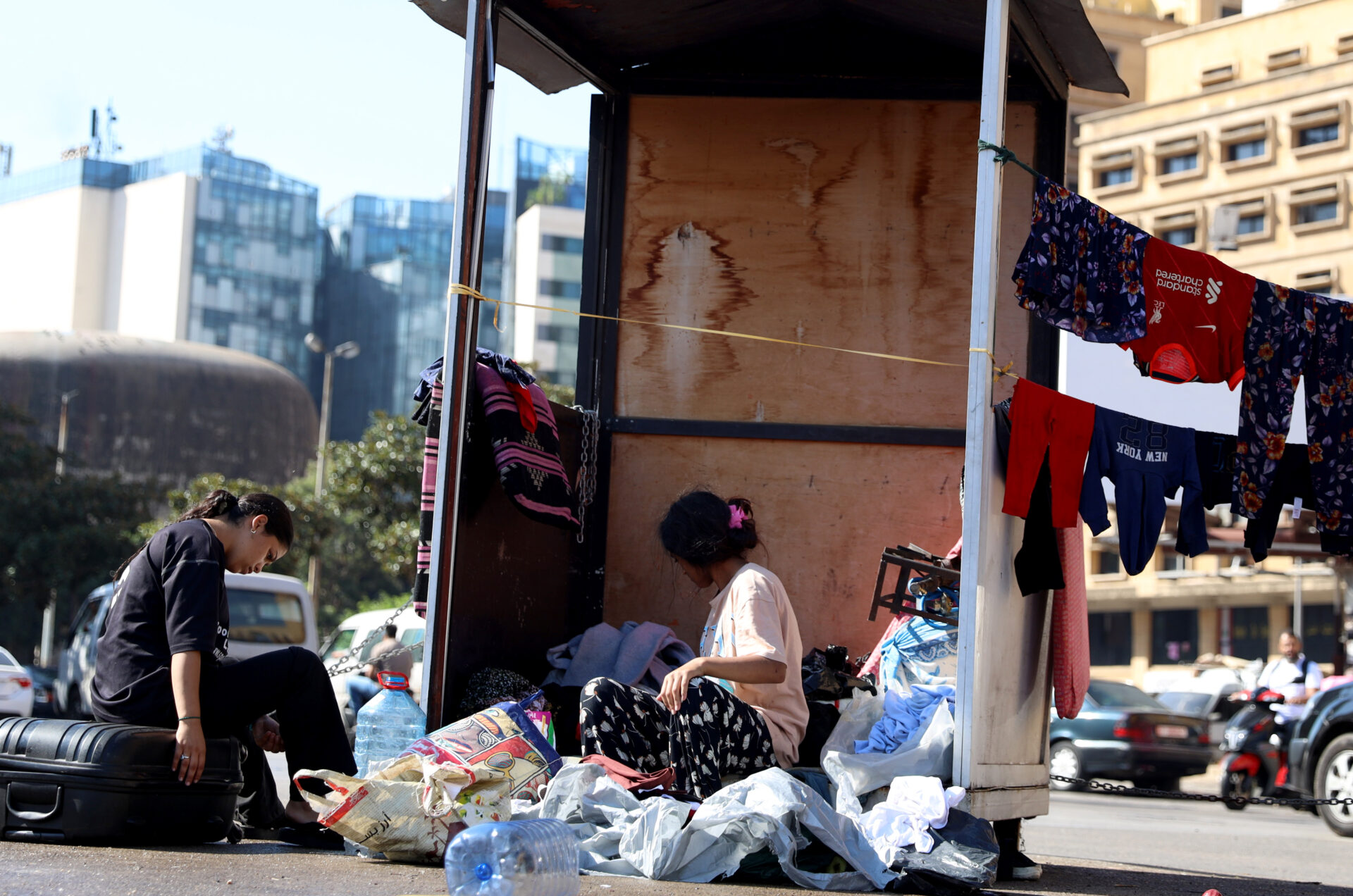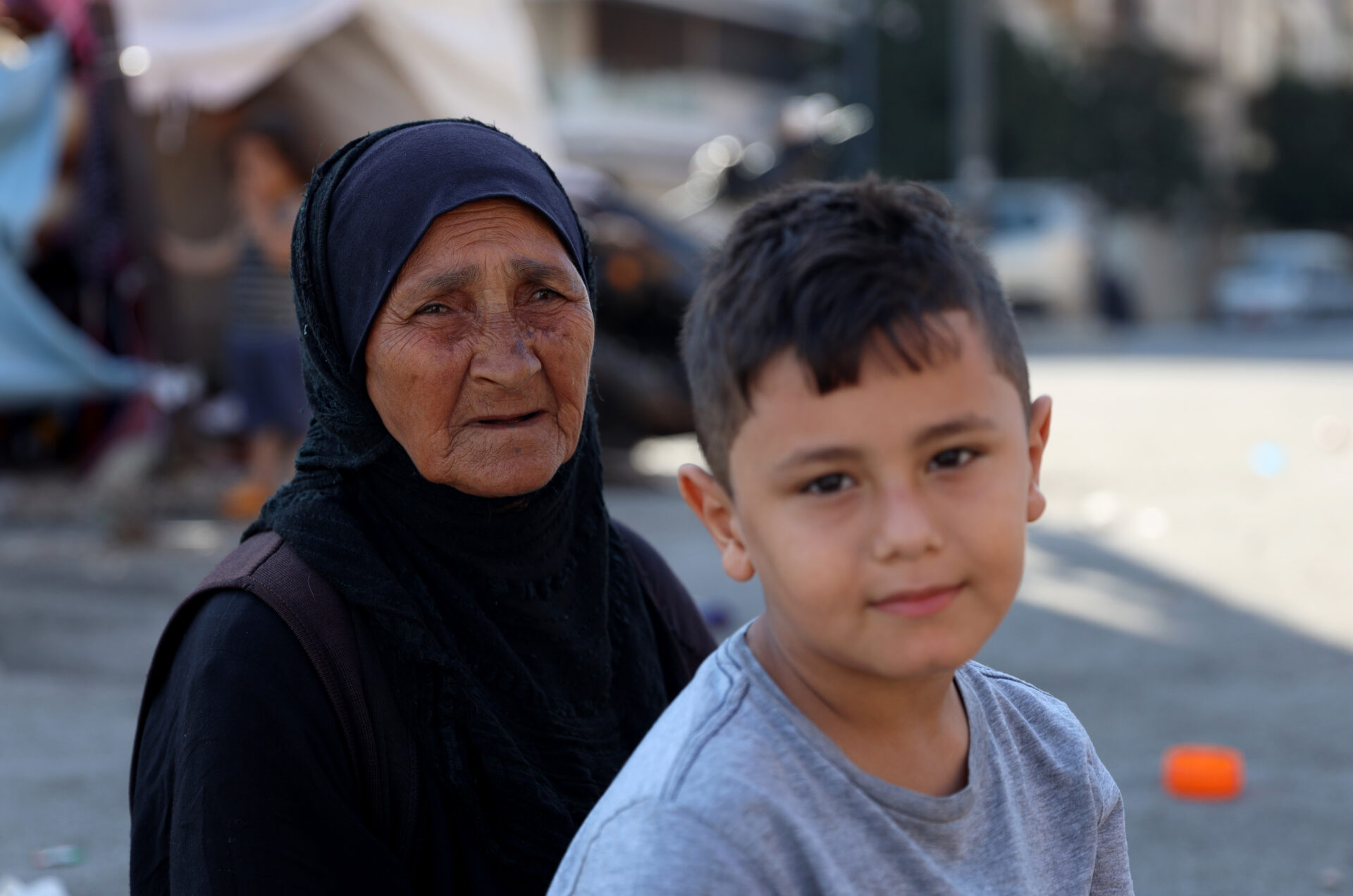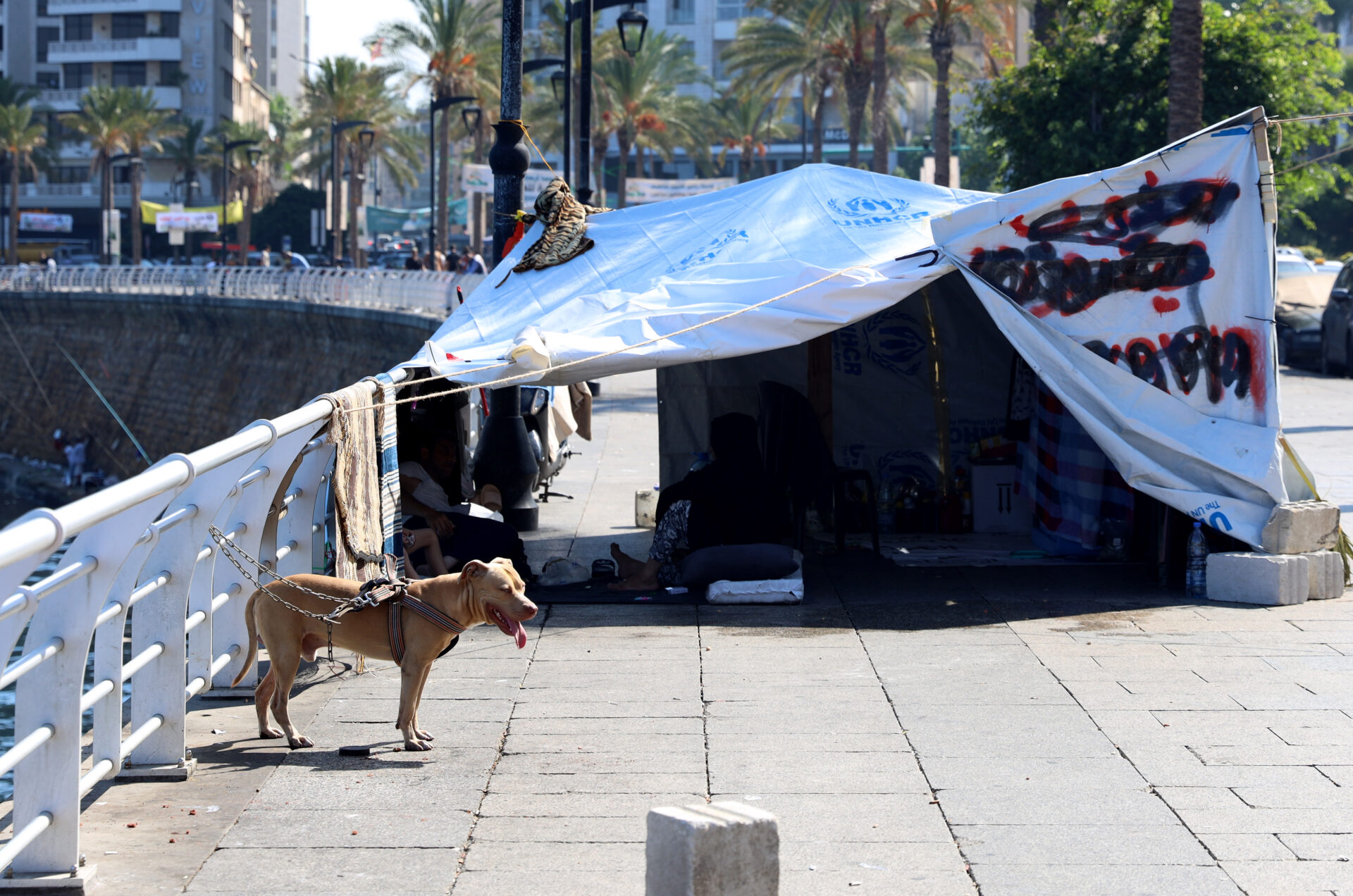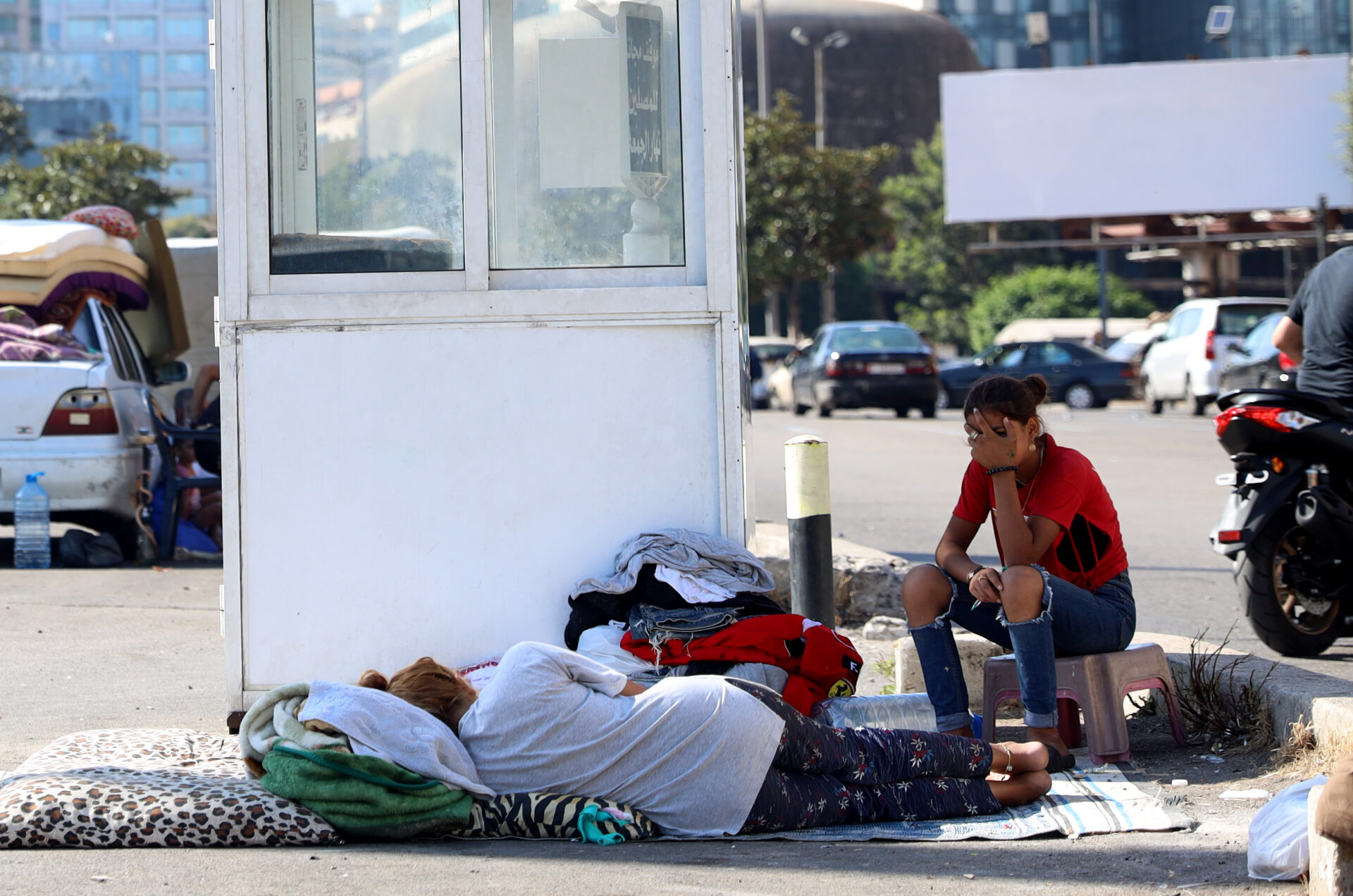Oct, 2024
The impact of displacement on young lives in Beirut
The approaching winter looms as a bitter threat for many families in Beirut this year as they confront the harsh reality of displacement. Countless children face a daily burden of fear and uncertainty, haunted by recent memories of conflict that forced them from their homes. The sounds of war have echoed through their neighborhoods, leaving scars that are not easily healed. So many children affected by the war are now living on the streets with their families.
"With winter fast approaching, Beirut's streets are lined with displaced families who have lost everything," says Hicham Mustapha, a communications specialist at Anera. "It’s devastating to witness people who have already endured so much now facing the brutal cold without a roof over their heads, wondering how they will survive.”
Moussa, a 29-year-old father displaced from the southern suburbs of Beirut, shares his experience.
“We left on Friday. I used to live in Ghobeiry. Our house is still standing, but what we witnessed these past few days was horrific. The sounds were indescribable, and everyone in the area fled. We couldn’t stay there.”
Moussa describes the emotional toll on his children.
“My children are traumatized. I felt we had no choice but to leave, even if it meant ending up on the streets like we are now.”
The chaos of their departure and the uncertainty of their situation weigh heavily on their young minds. They are not just without a home, they are without the sense of safety and security that is essential for their development.
Hasan, a 42-year-old father of a boy and a girl, also knows the struggles of parenting in these trying times. He fled Burj El Barajneh on September 27 when it became too dangerous.
“After spending five days here without even the chance to shower, I went back home to freshen up and gather some essentials. While I was leaving to go back to our campsite, a massive strike hit the gas station behind me, and I was thrown off my motorcycle,” he recounts, showing visible signs of the injuries he sustained.
Hasan’s thoughts are firmly with his children. “I just wish for a ceasefire and for the brutal Israeli aggression to stop. My kids, and all children, had nothing to do with this conflict. They deserve better.”
The trauma of displacement weighs heavily on the hearts of children, leaving them in a state of confusion and fear. Without proper support, these experiences can lead to long-lasting effects on their mental health and overall well-being.
Anera’s Response
With Anera's support, several centers' capacity has increased, enabling them to accept more families in need. Anera is focusing on the needs in these centers, especially for children, by providing bedding kits, psychosocial support activities, winterization kits, and hygiene products designed specifically for kids. These resources aim to alleviate some of the burdens these children face and help restore a sense of normalcy in their lives.
In addition to immediate support, Anera, in collaboration with its partners, has launched training courses for youth, offering classes that include sewing. Participants in this program are creating sleeping bags from scratch, which are then distributed to those in need within the shelters. These training programs are compensated, providing participants not only with essential skills but also a means to contribute financially to their families while making a positive impact in their community. This dual approach—addressing immediate needs while fostering long-term resilience—is crucial for helping these children and their families navigate their current challenges.
The plight of children displaced by conflict is a pressing issue that demands immediate attention and action. As winter sets in, the need for shelter, support, and resources becomes increasingly critical. Anera’s commitment to helping these children and all internally displaced individuals navigate their trauma and restore a sense of hope is vital in ensuring they can look forward to a brighter future.
By investing in programs that focus on the needs of displaced children, we can help them reclaim their childhoods and work towards healing in the aftermath of the crisis. The community’s involvement is essential—donations, volunteer efforts, and advocacy can make a significant difference in the lives of these vulnerable children. Together, we can provide the support they need to thrive in these challenging times, ensuring they have the opportunity for a better tomorrow.





